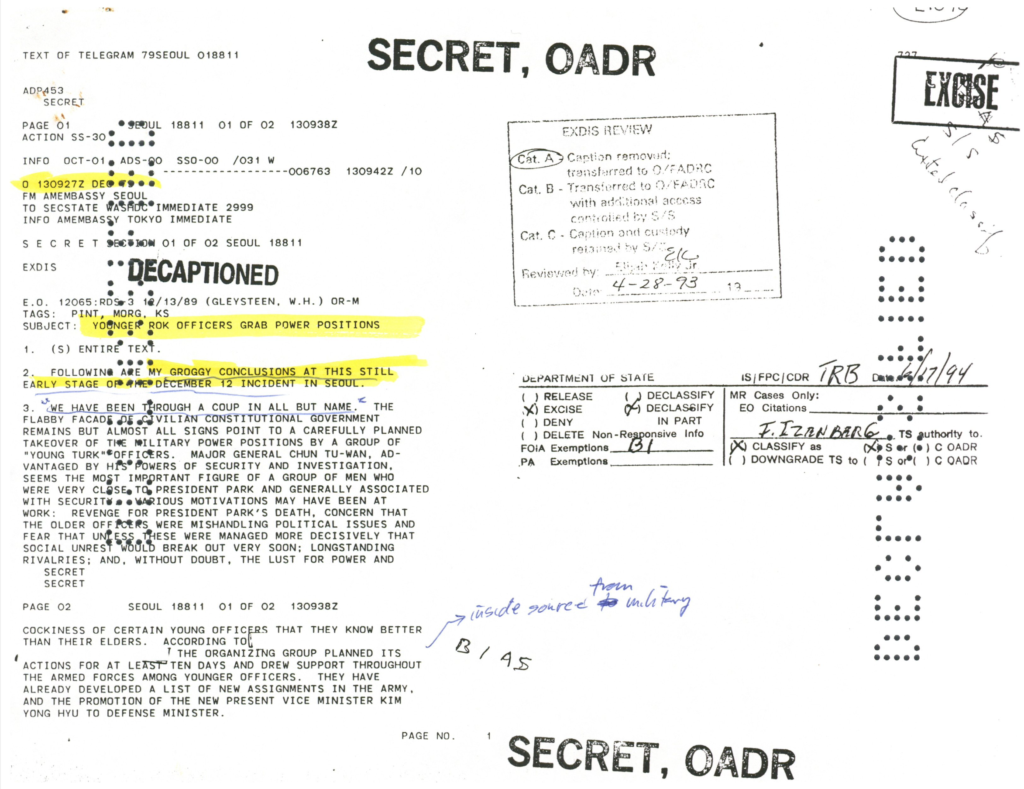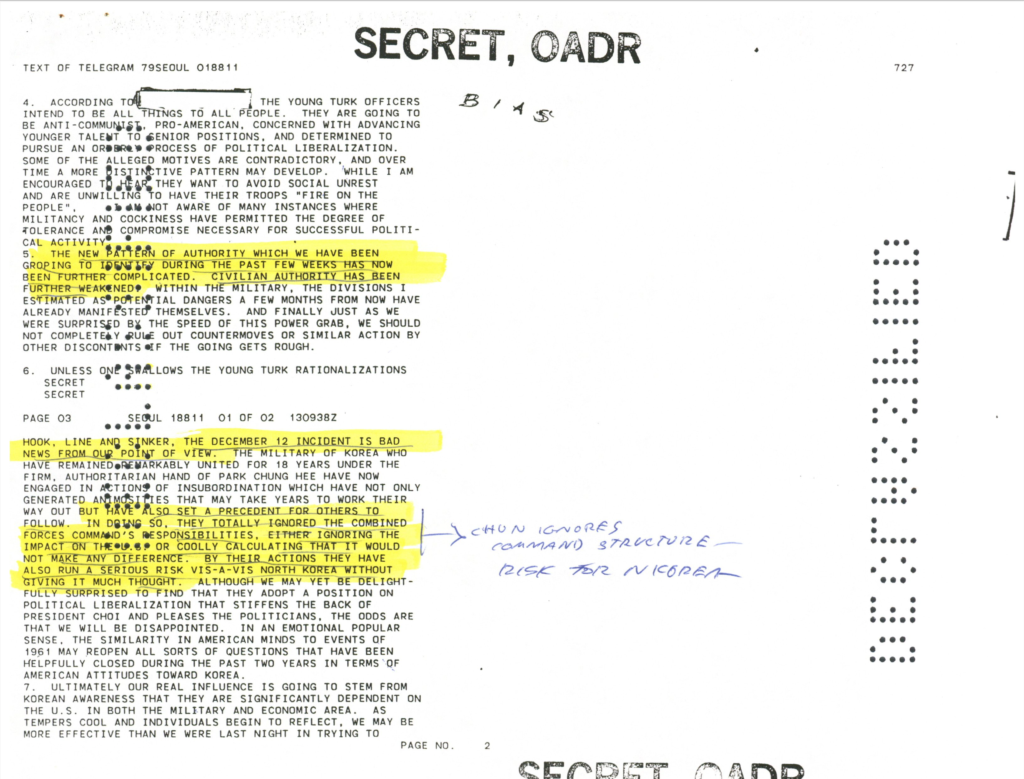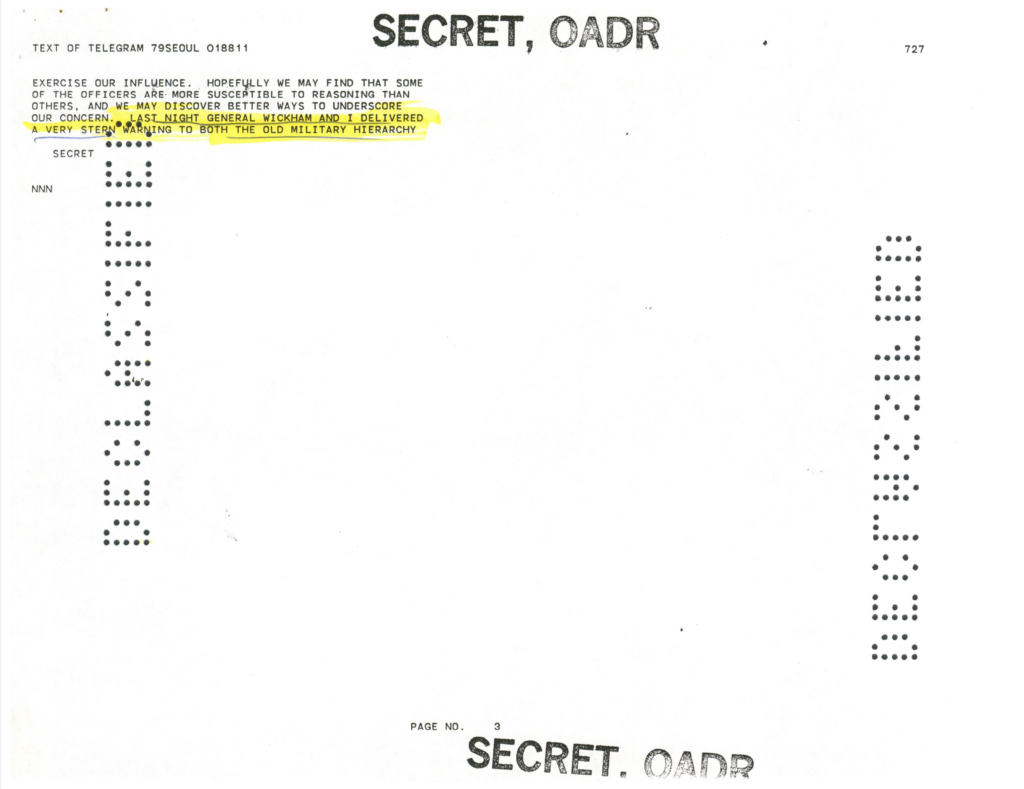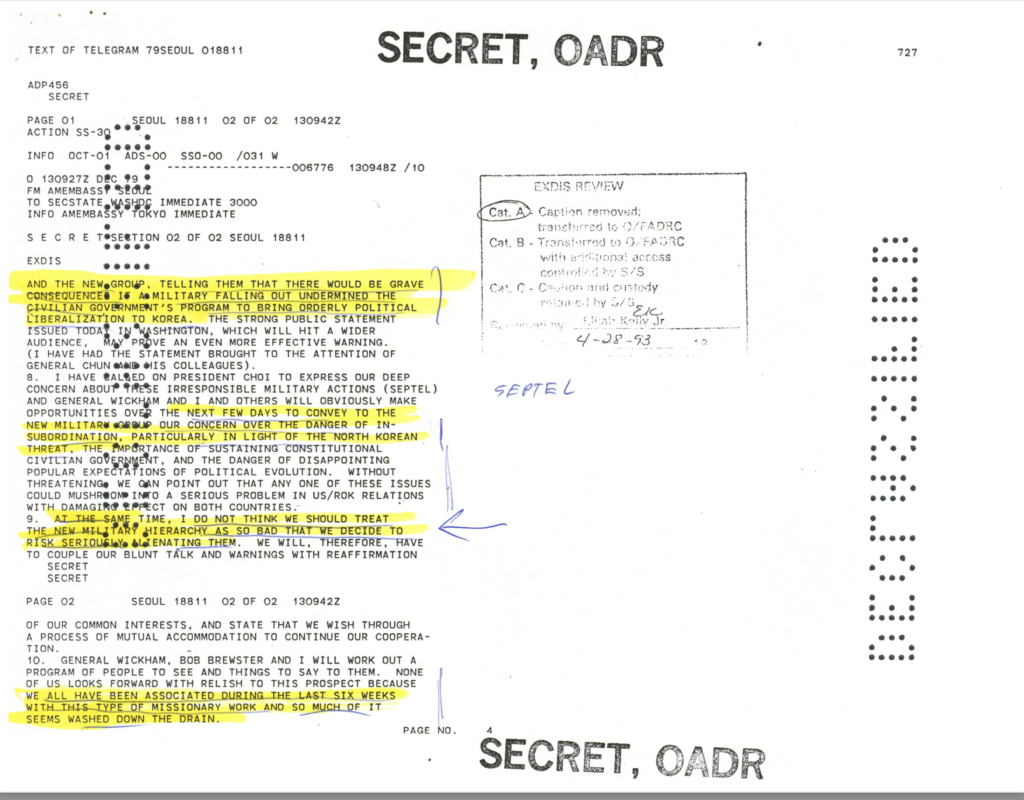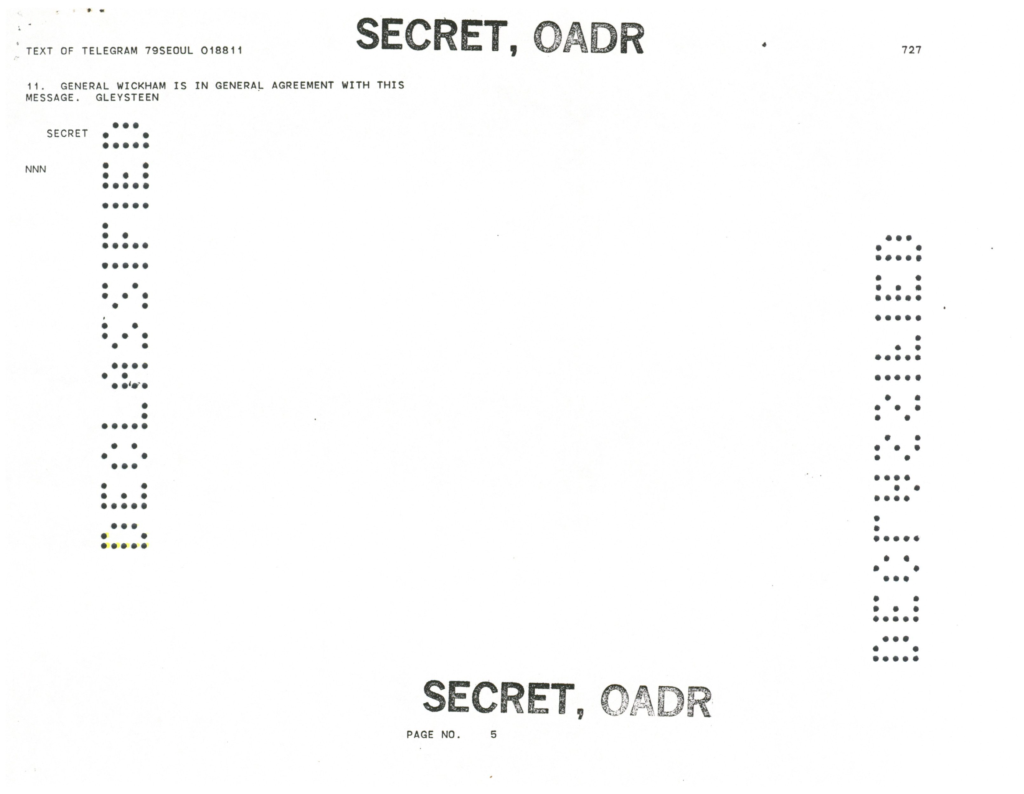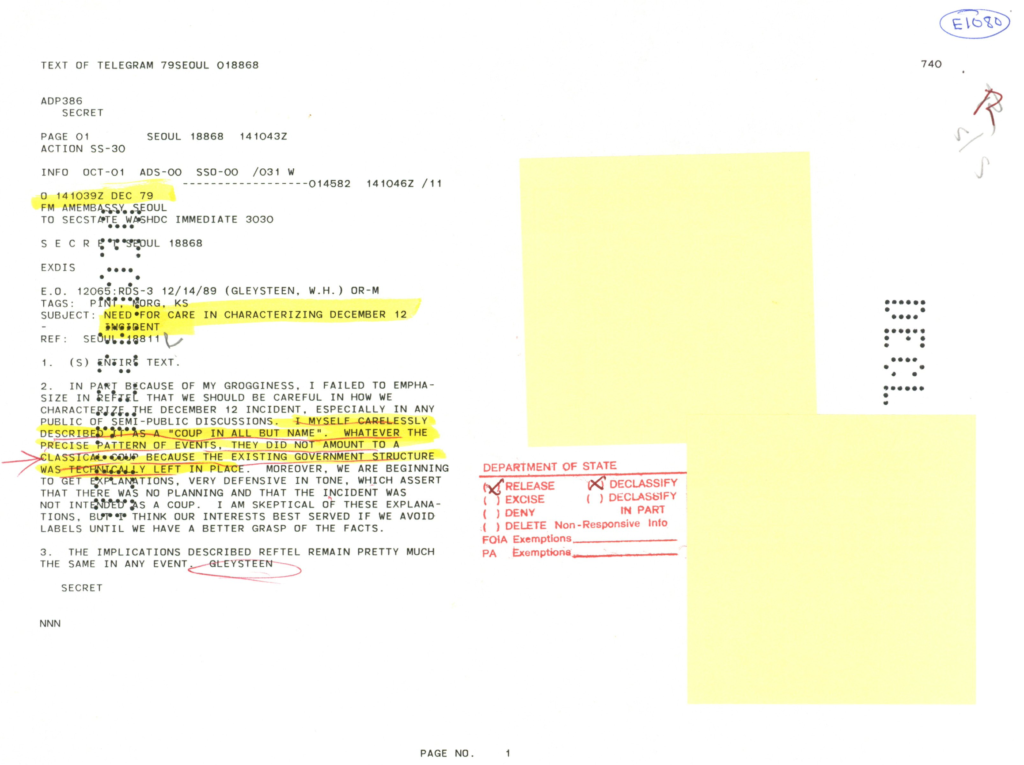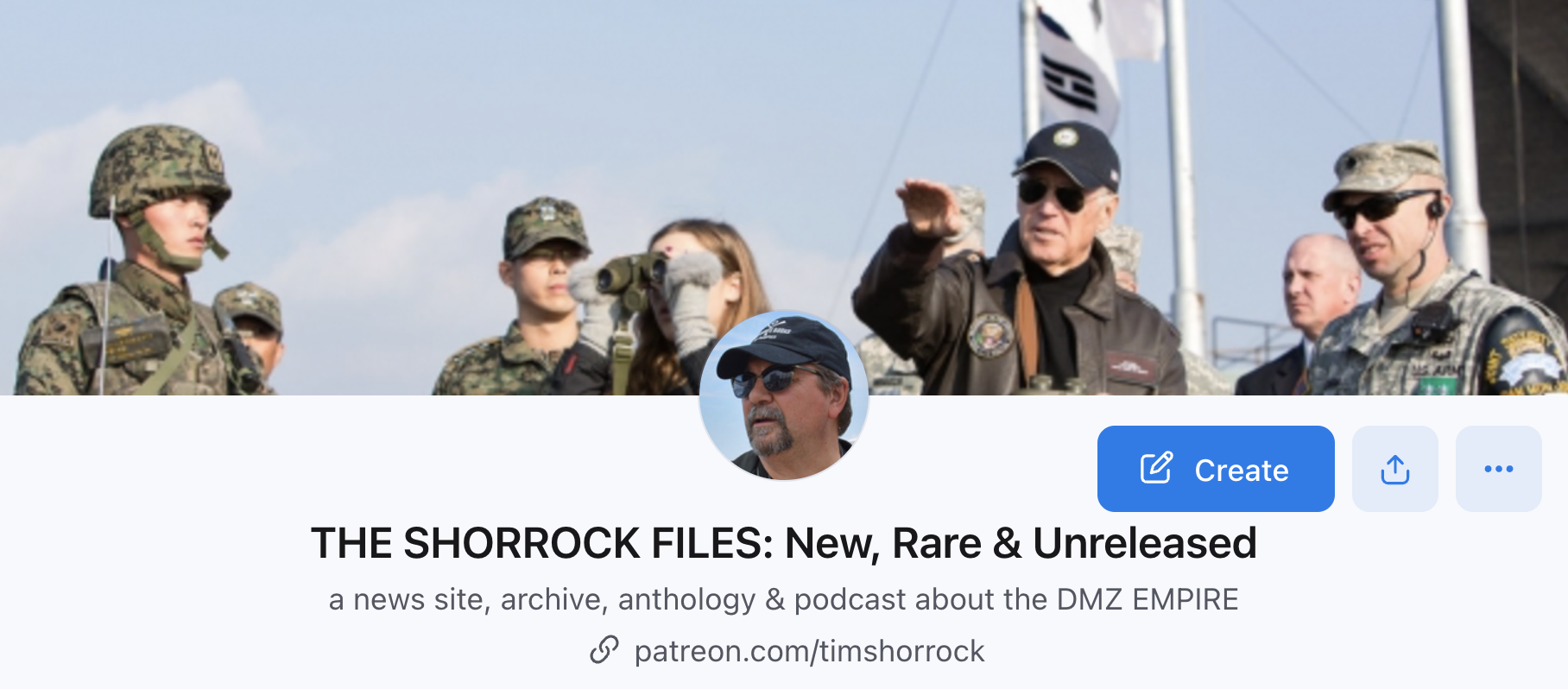Hankyoreh reports on Washington’s shifting perception of Chun’s 1979 mutiny
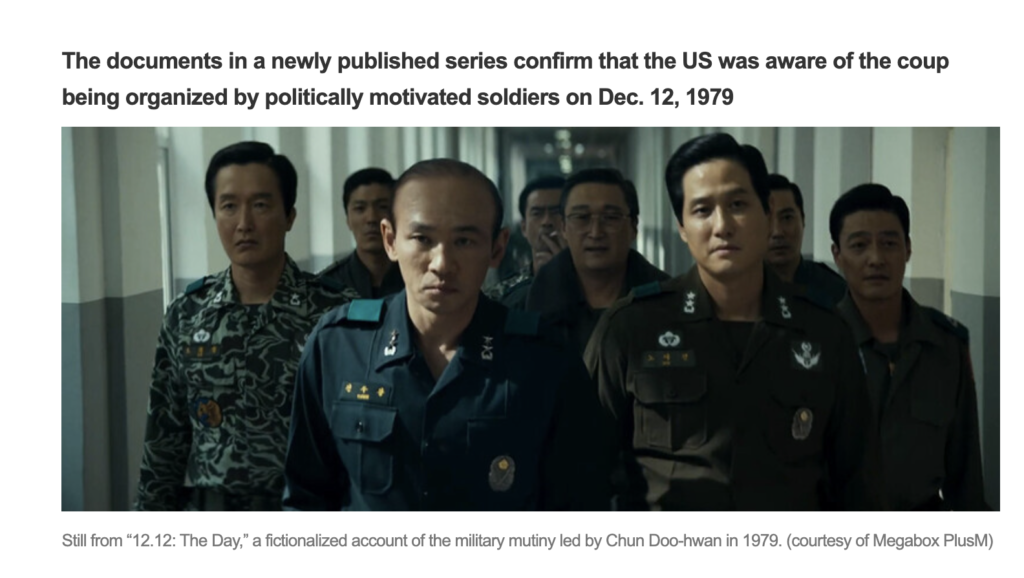
Nearly 30 years after I released key U.S. documents on South Korea during the period of military instability from 1979 to 1980, the Korean media is still finding newsworthy items among the thousands of pages obtained from the highest levels of the Carter administration.
UPDATE: MBC-TV in South Korea just ran a story on the new Korean edition of the Cherokee Files, complete with shots of the originals stored in the Gwangju 5.18 Archives and an interview with Lee Jay, a participant in the uprising who edited the Korean-language collection.
On January 4, 2024, the daily Hankyoreh published excerpts from declassified U.S. cable traffic on the December 12, 1979, intra-military coup carried out by a group of hardline generals led by Chun Doo Hwan. During the shootout at the South Korean military garrison in downtown Seoul, forces commanded by Chun arrested the martial law commander and replaced him with a general more loyal to their upstart group.
“We have been through a coup in all but name,” U.S. Ambassador William Gleysteen cabled the State Department early the next morning after monitoring Chun’s putsch from the command bunker of the U.S. military command in Seoul. “The flabby facade of civilian constitutional government remains but almost all signs point to a carefully planned takeover of the military power positions by a group of ‘young Turk’ officers.”
The Hankyoreh report was generated by two events: the release of a new film about the “12/12” insurrection in South Korea, and the publication of a 3-volume collection of my documents, known as the “Cherokee Files,” in Korean translation. As I reported here last spring, the files were translated by the May 18 Democratization Movement Truth Commission as part of its sweeping investigation into the events in Gwangju in May 1980, when over 300 citizens were killed by Chun’s martial law forces after they seized control of the government.
A recently published three-volume series of materials related to the democratization movement in Gwangju and the resulting massacre in May 1980 includes a striking series of documents composed by the US intelligence community around the time of the coup on Dec. 12, 1979. The series brings together American documents that were donated to the city of Gwangju in 2017 by Tim Shorrock, an American reporter.
These documents consist of cables that were urgently transmitted between the US Embassy in South Korea and the State Department during the events in Gwangju in May 1980, the minutes of meetings held by senior bureaucrats in the White House, military intelligence collected in utmost secrecy from various corners of Korean society by the Defense Intelligence Agency, and CIA analyses of how the US government ought to respond to the forces behind the coup, including Chun Doo-hwan.
“The documents in this series confirm that the US was aware of the coup being organized by politically motivated soldiers on Dec. 12, 1979,” Hankyoreh reported.
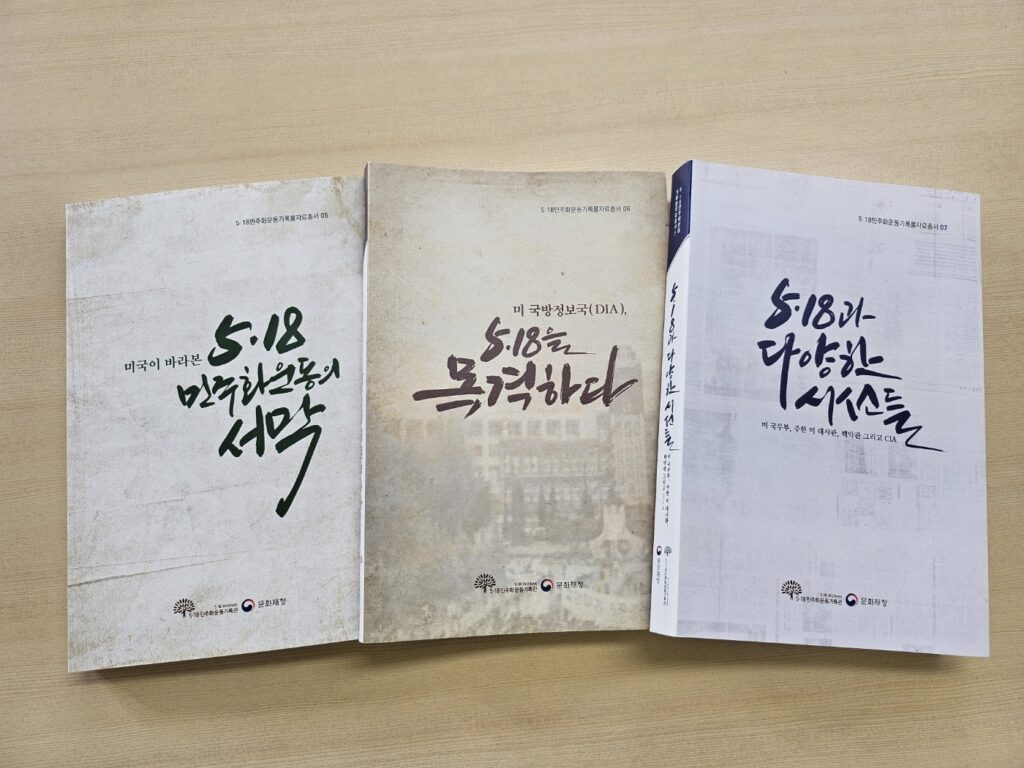
The Key Documents from 12-12
Below are the key documents on the U.S. response to the 12/12 coup, which I first reported on in February 1996 in The Journal of Commerce and Sisa Journal.
